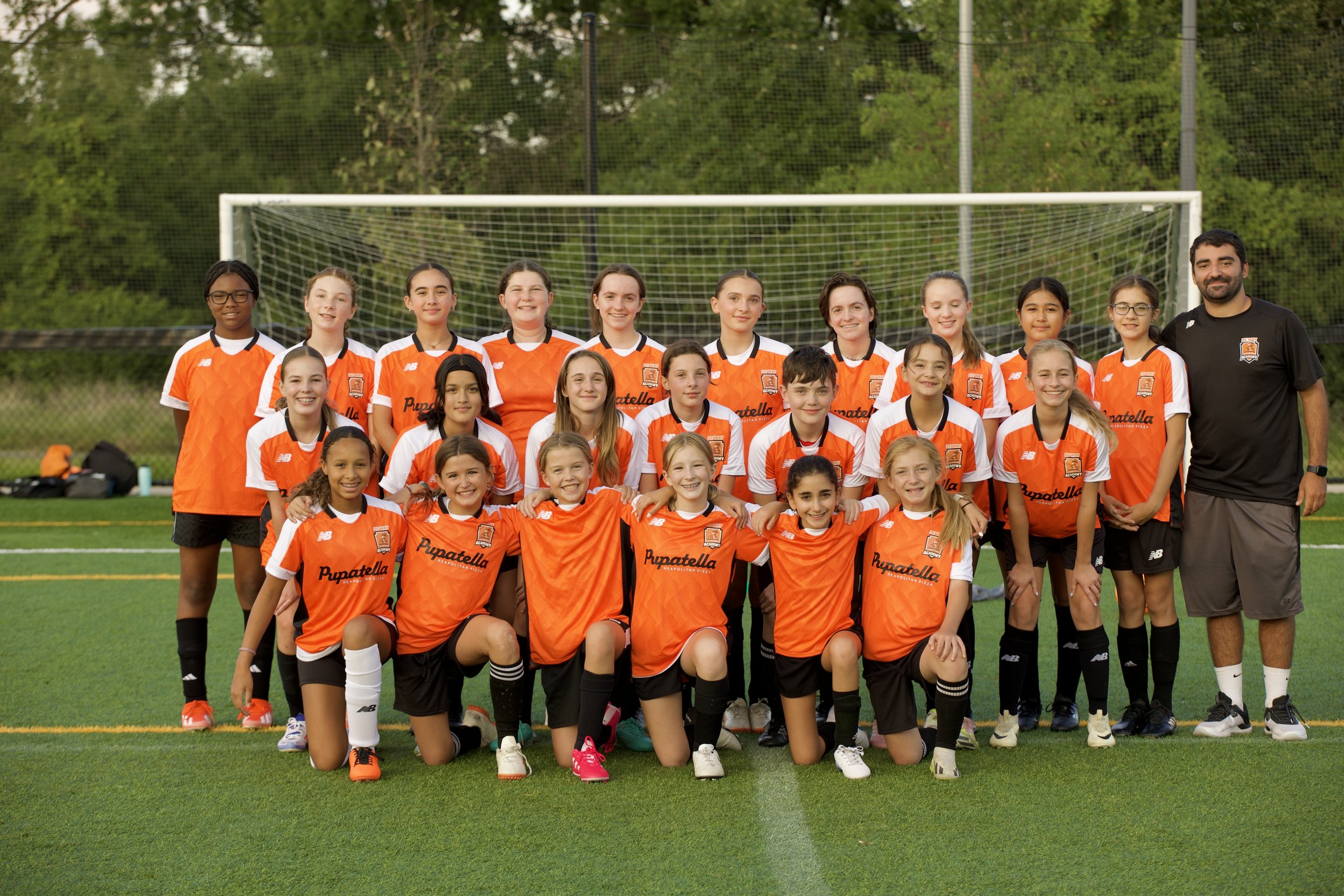
Training Breakdown
DC Way Academy Training Philosophy: A Smarter Way to Learn Soccer
At DC Way Academy, we believe in one powerful idea: real learning happens through real play. Soccer isn’t a simple sequence of drills or isolated techniques. It’s a dynamic, ever-changing game full of decisions, relationships, and movement. That’s why our training methodology is rooted in the science of how soccer actually works, and how players actually learn.
We don’t just coach technique. We build thinkers, problem-solvers, and adaptable athletes by embracing the game’s complexity and training the brain as much as the body. Here's how we do it:
1. Soccer Is a Complex System
Soccer is not made up of isolated moments. Each action on the field interacts with everything else: a pass changes the shape of play, a run creates space, a defensive shift alters the entire game plan. Nothing happens in isolation.
Players who succeed aren’t just technically good—they read the game, adapt quickly, and make smart decisions under pressure. Our job is to create training environments that reflect this complexity.
2. The Brain Is a Complex System, Too
Learning doesn’t happen by memorizing moves. It happens when the brain connects perception, emotion, memory, and action. That’s why real soccer learning must happen in real soccer situations.
Our sessions are designed to stimulate the brain, challenge perception, and encourage decision-making. Children don’t just learn what to do; they learn why, when, and how to do it, in real time.
3. The Power of Affordances
What is an affordance? It’s a possibility for action based on the environment. In soccer, this could be a passing lane, a 1v1 opening, or a teammate's movement.
Our training teaches players to read these opportunities as they emerge because that’s what great players do.
4. Learning Through Experience
Players don’t need ready-made solutions. They need opportunities to explore, try, fail, and learn what works. Through games, challenges, and decision-making situations, we guide them to discover solutions on their own.
This process builds more resilient and intelligent players who can adapt under pressure. Mistakes are not punished; they are expected and embraced as part of the learning journey.
5. Mirror Neurons and Observational Learning
We learn by doing, but also by watching. That’s why game-based training and peer learning are so important. When players observe their teammates, their brain activates as if they were performing the action themselves.
That’s powerful learning. Our coaches create environments where this type of interaction happens naturally.
6. Training Must Be Complex
Traditional drills may help with repetition, but they don't build game intelligence. Our practices are built around:
Dynamic game scenarios
Realistic pressure
Rules and constraints that challenge decision-making
This keeps players engaged and learning in a way that mirrors the demands of the actual game.
7. Individual Focus in a Team Environment
We work with the whole team, but we always see the individual. Each child learns differently — some visually, some by doing, some through conversation. Our coaches adapt to these learning styles.
We also use video analysis thanks to our collaboration with David and the professional team from Italy. This helps players understand their movements and decisions by seeing themselves, speeding up the learning process and reinforcing what they do well.
8. The Role of the Coach
Our coaches aren’t just instructors. They’re designers of experiences. They guide players to reflect, reward positive behaviors, and create training that adapts to the child.
We don’t just fix errors. We reinforce what works, because the brain learns best from success that it recognizes and understands. The coach is a guide, not a dictator. We don’t give answers; we help players find their own.
9. The Game Is the Lesson
At DC Way Academy, the game is not a reward—it’s the core of how we train. Every game format we use, from small-sided matches to creative movement games, builds the real skills players need to grow.
These games teach anticipation, timing, communication, and resilience, the real ingredients of player development.
10. Why It Matters – Smarter Players, Happier Kids
We believe children develop best when they feel supported, challenged, and free to enjoy the game. At DC Way Academy, soccer is not just a sport; it’s a language for creativity, resilience, and growth.
Our training builds:
Players who think on the field
Individuals who trust their instincts
Teammates who understand each other
Children who love the game and love learning
